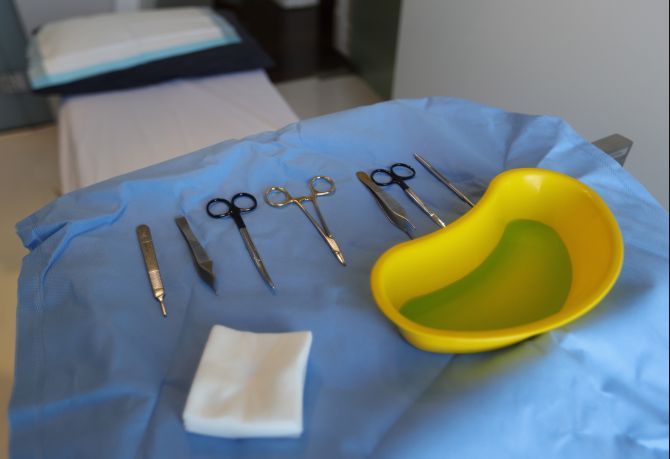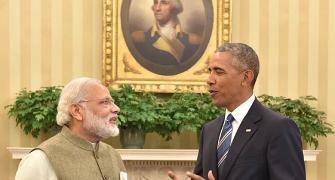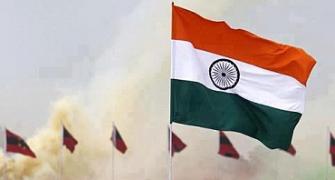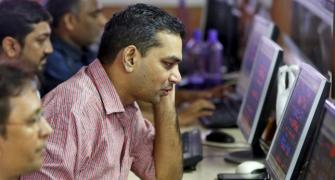The kidney transplant racket revealed an ugly side of healthcare in India.
Rashme Sehgal finds out how this racket is merely the one that didn't get away.

The kidney racket that was busted at the Apollo Hospital in New Delhi is only the tip of the iceberg of a multi-million dollar racket with Kolkata at its epicentre.
T Rajukumar Rao, the kingpin of the racket, was arrested by the police on June 7 in Rajarhat in West Bengal's North 24 Parganas district.
Kolkata has over 48 government hospitals, some of which are alleged to be involved in this racket.
Kolkata also serves as a convenient hub because large numbers of people from Bangladesh and Nepal come to the city for kidney transplants. A kidney transplant at a private hospital can cost up to Rs 35 lakh (Rs 3.5 million) though the rates in government hospitals are a little less.
A senior nephrologist at the All India Institute of Medical Sciences believes a kidney racket of such a magnitude cutting across several states cannot take place without the knowledge of managers at a hospital and senior doctors.
Rao confessed to the police that the racket spanned several countries including Sri Lanka, Indonesia and Singapore and involved middlemen, organ donors and their recipients and that he and his team of accomplices had ensured that over 100 recipients had received illegal kidney donations.
Rao travelled abroad looking for kidney recipients and had bought three houses for himself in Kolkata. One of these houses was bought for over Rs one crore (Rs 10 million) and was located close to the airport.
At the time of his arrest Rao told the police that he was in touch with 25 recipients and had taken advances from them.
The modus operandi is simple.
Kidney scouts roam around the labour markets in the poorest districts of Bihar, West Bengal, Uttar Pradesh, Tamil Nadu and Delhi in search of potential donors.
If the donor agrees to sell his kidney for between Rs 200,000 and Rs 300,000, he is taken to a nearby nursing home to see whether his kidney matches the needs of prospective patients.
If it does, the individual's kidney is harvested and the money paid to the donor.
A nephrologist working out of AIIMS says he has heard of several teams of criminals who travel across the country and would not hesitate to "kidnap and murder" in order to make money out of organ trafficking.
Children and adults are being kidnapped and killed and their organs then sold to nursing homes and hospitals. This happened with a four-and-a-half-year-old-girl who was operated at AIIMS. A month later, her father returned to the hospital to complain that one of his daughter's kidneys was missing.
An 18-year-old student in Noida who had gone to buy a notebook at a market in Ghaziabad never returned home. His anguished parents believe their son was kidnapped by the organ mafia.
"It took the police two months to lodge an FIR. The police kept insisting the boy must have run off to Mumbai. Our son remains untraced to this day and we believe he was kidnapped by criminals in the organ trade which is rampant in Ghaziabad," says the boy's mother.
Ram Chaurasia, chairperson, Bachpan Bachao Andolan, believes that when the NGO locates children who have gone missing, they often come across dead bodies of children whose organs are missing.
"We find children whose hearts and kidneys and other organs are missing. The police will close the case by saying some animals have eaten the organs of these children. It is much easier to file a case of kidnapping and murder or of death by attack from an animal," says Chaurasia.
"If the complaint talks about missing organs," he adds, "the situation becomes complex because then the police will have to conduct a more detailed investigation."
India currently confronts an epidemic of diabetes and high blood pressure with three out of five Indians known, according to recent studies, to be suffering from these ailments.
"One of the fallouts of both diabetes and high BP is kidney failure," says Dr Monik Mehta, a senior doctor at the Artemis Hospital in Gurgaon. "We have a huge population in our country on dialysis. They are desperate to have their kidneys changed and will go to any length to get a transplant."
"The government has set up an Indian Transplant Registry which shows that from the 100,000 to 200,000 people who require this organ every year, only about 5,000 get a transplant," Dr Mehta adds.
It is this shortage which is being filled in by racketeers who appear to have placed themselves in key positions at some hospitals and nursing homes.
In the Apollo Hospital case, a senior nephrologist's personal assistants were in contact with three middlemen who used to 'persuade' poor people in West Bengal, Tamil Nadu, UP and Bihar to sell their kidneys for a measly Rs 200,000 to Rs 300,000. The middlemen are paid Rs 50,000 per patient.
The government has mandated that under the Transplant of Human Organ Rules 2014, only organs of immediate blood relatives including parents, siblings, children, grandparents and grandchildren can be accepted for transplant.
Evidence of this relationship has to be submitted to the hospital with all accompanying documents including a PAN card, bank accounts, family photographs etc. The nephrologist's personal assistants were found to have fake voter ID cards and Aadhar cards in order to substantiate fraudulent relationships.
Following this exposure, Apollo Hospital issued a statement pointing out that it had an independent transplant authorisation body consisting of five members including two external members, who would verify that all identification documents to ensure all requirements under the Act were being complied with.
"It seems difficult to believe that senior doctors would indulge in such practices especially when their personal reputation is at stake and when they know their medical licenses can get blacklisted," says Dr Mehta. "Everything is traceable these days."
Apollo Hospital has constituted a three-member committee to look into the existing system of granting approval for organ transplants at its hospital.
It has invited Justice Mukul Mudgal and forensic expert N C Sood to be members of this committee. The third member will be an eminent medical professional.
The racket came to the forefront in the most peculiar manner. Two residents of West Bengal who had supplied their kidneys were involved in a fierce quarrel outside the Apollo Hospital.
They were taken to the police station at Sarita Vihar where one of the kidney suppliers Maumita told the police that her husband Devashish Mauli had promised her Rs 300,000 if she sold her kidney. She had agreed to do so, but she received only Rs 150,000 from the middleman Sikdar.
Mauli informed the police that he had agreed to sell his kidney to Sikdar and had collected the money in advance. Unfortunately, his kidney did not match the recipient and so he had persuaded his wife to sell hers.
The police arrested the three middlemen. Personal assistants of other nephrologists at the hospital are under scrutiny. One PA was arrested June 10.
A Chennai-based survey conducted almost 15 years ago of 305 individuals who had sold their kidneys revealed that 96 per cent of the donors used the money to pay off debts with the rest spent on food and clothing.
India has been the centre of organ trafficking for over three decades. In 2008, an Interpol notice was served on Dr Amit Kumar and his brother who are reported to have conducted over 500 illegal kidney transplants.
Organ trafficking, according to the World Health Organisation, is commercial transplantation done for profit.
This kind of transplantation occurs outside the national medical systems. WHO estimated in 2007 that organ trafficking accounted for 5 to 10 per cent of kidney transplants performed annually across the globe.
In India WHO estimated that around 2,000 Indians sell a kidney every year. Nine years later, the figure has gone up to around 5,000. The figure will rise further as the demand for kidneys rises.









